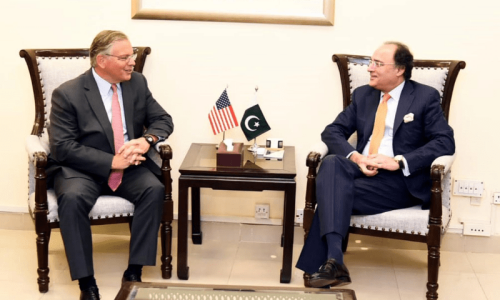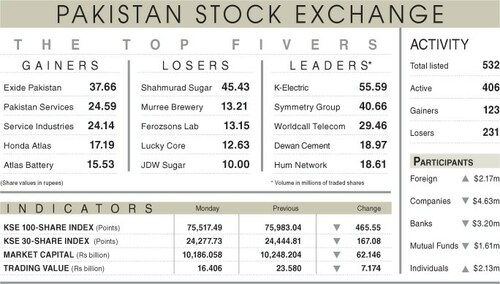
The nation is commemorating independence today. An informal limited survey indicated that the number of individuals questioning these celebrations has increased this year. In addition to the usual sceptics and some segments of impoverished population, millennials and Generation Z (aged 11 to 40) have joined those in doubt in big numbers.
This negativity feels peculiar at this juncture. The economy has been spared the collapse, and democracy is on track. Investor confidence is gradually recovering, yet public disillusionment has reached its base level. The question that confronts us is: What circumstances have led Pakistan, abundant in both natural and human resources, to its current state?
True, all problems have not been countered but no one contests that economically Pakistan is at a better place today than where it was just weeks earlier. The country dodged sovereign default that looked imminent at one point. After a long wait, stars suddenly realigned in its favour. Be it improving Saudi-Iran ties, relative thaw in US-China tensions, access to new cheap Russian oil or the revived China-Pakistan Economic Corridor, opportunities have started presenting themselves.
The fact that democracy survived alarming crises in the recent past (Covid-19, devasting floods, post-vote-of-no-confidence turmoil) is an achievement in itself. Caretakers will hopefully hold elections and transfer power in accordance with the law.
Stakeholders weigh in as to why Pakistan’s path to economic growth is not of those countries with similar independence timelines
Some experts consider the current depression a natural outcome of overenthusiasm/activism and not necessarily alarming. “The disillusionment is better than ignorance and blind trust, I believe. If allowed a natural course, it will lead to enlightenment that over time will translate into higher productivity,” reasoned a retired technocrat with a philosophical bend.
“Caretaker set-up is a stop-gap arrangement with the limited mandate to hold free and fair elections on time but the next elected government must reorient Pakistan’s policies to benefit children and youth if we wish to arrive in future.
“Over the past four decades, the world has transformed beyond recognition with digitisation and revolution in communication technologies. Generation X (aged 40-60) and Boomers (above 60) can’t be trusted with the future. The current pace of the change is beyond the comprehension span of many. The youth is the most adaptive, motivated, forward-thinking segment of the population. Their positivity adds to resilience and progress”, a caretaker hopeful commented but refused to own up his opinion.
A reputed business leader Musadaq Zulqarnain, CEO, Interloop group of companies, blamed intolerance and neglect of youth in Pakistan for faring worse than others. When asked to identify two key factors responsible for our plight, he responded thus: “First, we failed to make Pakistan a moderate pluralistic country that drifted towards rigid religious and sectarian divide.
“Secondly, we did not prioritise quality education to all and neglected to nurture our children to become caring and productive citizens”.
Saqib Shirazi, a member of Atlas Group, President and CEO Atlas Honda, found state structure primitive, obstructing the natural pace of progression.
“Unlike others with similar independence timelines, we have as yet to develop. Two key contributors to the sorry state of affairs include: Firstly, Pakistan lacks governance structure that responds to peoples’ needs and aspirations — basic health, education and social security.
“People expect transparency in revenue creation and allocation mechanism at all tiers of the government. Singapore is often singled out as a model but all Far Eastern nations did well post-independence as the order of their priorities was better.
“Secondly, the economic model is flawed. The tax-compliant private sector should have been at the heart of capital formation with the government role limited to being a regulator and a facilitator. There should have been an even application of laws without any exceptions.
“Economic prosperity, job creation, fair pay and savings can only be harnessed through a commitment to a pragmatic approach that induces domestic and foreign private sector investment into a capital deficient country with huge underemployment.”
A seasoned executive with vast experience in overseeing mega projects in Pakistan and the Middle East advocated for a more robust democracy. He believed that the attainment of independence should have succeeded by expanding additional freedoms, encompassing realms of basic needs, education, health, equal opportunities and the right to dignified employment.
He cited the example of Japan, which despite being devastated by World War II, managed to rebound through the resilience and work ethics of its citizens. The leadership’s call to ‘Lay down the guns and take up tools’ yielded success in rejuvenating the nation.
“Grant democracy a chance,” he insisted. “If it hasn’t delivered as expected, bolster it through successive election cycles until it begins yielding results for both the populace and the nation.”
Mohammad Sohail, a capital market analyst and CEO, Topline Securities, sounded sore, probably also because the negativity hurts his business. He thought the reality of Pakistan is better than the perception peddled on social media.
“Fake news and political polarisation are the culprits. I think the perception of Pakistan is worse than the reality in the eyes of the new generation. We remember the late 90s when Pakistan defaulted and the economy shrunk. Still, the perception of the country was better than what it is today.”
Majyd Aziz, president, UN Global Compact Network Pakistan, blamed the elite capture for Pakistan’s underperformance. “Over the past seven decades, millions missed basic schooling leading to financial, intellectual and moral poverty. The intent to end hunger and poverty has been missing. The vulnerable population had no choice but to resign to suffer in deprivation. The depression in youth, therefore, is perfectly understandable.”
Another retired executive, who saw a saviour in former Prime Minister Imran Khan, found the roots of the current malice in the nationalisation policies of Zulfikar Ali Bhutto, the delay in the building of Kalabagh Dam, judicial activism of former Chief Justice Iftikhar Chaudhry who ruled against Reko Diq project and blocked the sale of Pakistan Steel Mills, halting privatisation and the flow of foreign direct investment.
In his extensive post on the subject, Asad Ali Shah, a technocrat, offered a critique of the policy decisions made by the nation’s founding fathers. He attributed the initial misjudgments to a faulty foundation that subsequently impacted the political landscape and hindered the potential for sustained growth.
“It is fundamentally because of state capture by the elite,” said economist Dr Hafiz Pasha, summing up Pakistan’s problems succinctly.
Published in Dawn, The Business and Finance Weekly, August 14th, 2023














































Dear visitor, the comments section is undergoing an overhaul and will return soon.